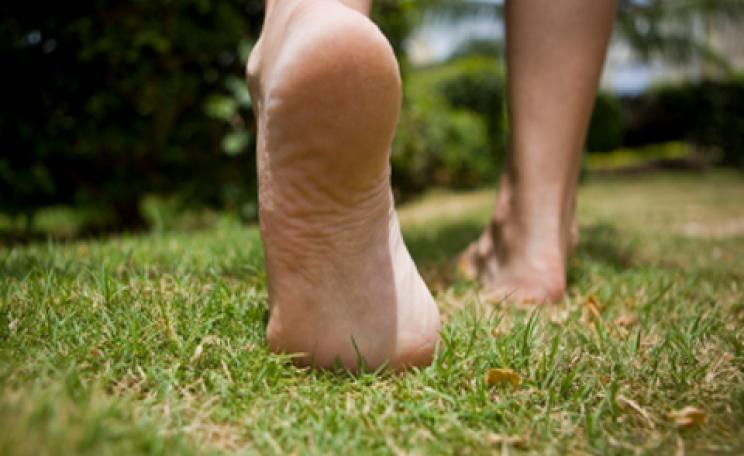Overworked? Broke? Unemployed? Hopeless? If none of these apply to you then congratulations, but even if you have cash and a job, you’re likely to be feeling lonely – a growing trend in our increasingly digital world. As for the rest of us, the gravitational pull of our demanding modern lives is seeing more and more of us hyped-up and collapsing as casualties of stress. Research conducted by the Stroke Association earlier this year found that 1 in 7 of us feel our stress levels are ‘out of control.’ It’s also estimated that 75 per cent of us feel stress to a greater or lesser degree at least once every fortnight.
Experts agree that a certain amount of stress is normal and even healthy. In certain situations (interviews, preparing a work presentation, in a rush to meet a deadline) our body needs to go into a heightened sense of adrenalin (which is a result of stress) in order to be motivated fully. Without any stress we can become lethargic or worse, lazy.
The stress that’s good for us though, should only be extremely short-lived. The danger is when stress is experienced severely, regularly or even constantly. This is unhealthy and requires action. Stress can be a particularly cruel emotion as there’s a vicious circle element frequently at play: stress due to a particular circumstance is followed by a physical reaction such as stomach upsets, palpitations or headaches - all of which intensify and lead to amplified stress levels. While for some, anti-depressants may be, quite literally, a life saver; the potential for addiction and unpleasant side effects mean they should never be the first port of call. Exercise and talking, two things we all do to varying degrees, have both been shown to be effective in making the chronically stressed-out more fit, focused and ultimately better equipped to face the challenges that life unremittingly hurls their way.
 It’s good to talk
It’s good to talk
‘The key thing to understand about stress is that it’s a primitive reaction to threat, activated as part of the “fight or flight” response that helped us deal with genuine threats to our life like marauding lions or aggressive enemy tribes.’ explains wellbeing coach Dan Roberts. Therapists like Dan believe that understanding what happens when our bodies enter the stressed state can help us in the fight against it. Dan explains the physical experience, adding that ‘when our brain perceives threat it readies us for action by flooding our bloodstream with stress hormones including cortisol and adrenaline - raising our heartbeat, making our breathing fast and shallow and a host of other physiological changes.’ Of course, in 2011 the majority of the threats we chance upon are not to our life, but are ‘psychosocial’ instead. These might be major stressors such as redundancy, debt, familial conflict or divorce, or a constant drip-drip effect of minor stressors like an unsupportive work environment, a cantankerous boss, raising small children or living in a noisy neighbourhood. According to Dan, ‘after a while, these accumulate until we can’t cope and we experience chronic stress as a result.’
‘The most effective talking therapy for stress is cognitive-behavioural therapy (CBT),’ says Dan. ‘That’s because you need to understand that it’s not the situation itself (work environment, boss or demanding kids) that is stressing you, but your thoughts and beliefs about that situation. When people are stressed, they commonly think things like, “I can’t stand it,” or “I just cannot cope with this.” So they exaggerate the challenges they are facing and underestimate their resilience and their ability to deal with those challenges in a practical, problem-solving manner. CBT helps to change the way the client thinks about and perceives specific aspects of their lives, and aids them in re-assessing their own coping capabilities. ‘ Through two-way discussions Dan works with stressed clients by helping them understand that, however unpleasant or demanding the situation they are in, by modifying their negative, unhelpful thoughts and replacing them with more positive, realistic ones, they can significantly reduce their stress levels.
Perfectionism is a common trait in stressed-out people, so if you are very stressed about work, for example, take a step back and ask yourself: ‘Am I a perfectionist? Does everything have to be done to a very high standard? And if so, is that really helpful?’ According to Dan, in reality perfectionists are often not as productive or effective as they could be, because they exhaust themselves in the pursuit of impossibly high standards. Tell yourself to aim for good enough. This will make life a whole lot easier. Another trigger is ‘should statements’. These are a common way we stress ourselves out, thinking things like ‘I should have handled that meeting better’ or ‘I shouldn’t be so bothered by my husband’s messiness.’ Also watch out for statements containing ‘must’, ‘have to’ and ‘ought to’, because they all place demands on us to be better, happier, cleverer, richer or skinnier. Try replacing them with ‘I wish’, ‘I would like’, ‘I would prefer’ or ‘I hope’, which will make your thoughts less demanding and help to stop you beating yourself up or driving yourself so hard. Get Fighting Fit
Get Fighting Fit
Chartered psychologist Paul Russell from The University of Bolton says that being active and exercising is one of the most natural and effective ways of managing stress. ‘Exercising is not about running the Marathon des Sabes [a 150 mile run across the desert],’ he says. ‘It’s about working at your own level and doing something you enjoy.’ Personal trainer, Ronnie Burgess, insists that exercise can be viewed as ‘meditation in motion’. It’s time for us; for reflection, for self-nurturing, it’s telling ourselves ‘you’re worth it’. ‘Being active can boost your feel-good endorphins and distract you from daily worries,’ says Ronnie. ‘Virtually any form of exercise, from aerobics to weightlifting, can act as a stress reliever.’ Exercise has long been known to release our body’s own feel-good chemicals. ‘It also allows you to feel a great sense of achievement and pride when you achieve your goals,’ says Paul. ‘It will boost your self -confidence and this will make you feel positive in many different aspects of your life. When you exercise you will naturally feel more alert, positive, energetic, and proactive, and you can take this approach into other areas of your life.’ Mental health charity Mind now run a research-driven programme encouraging exercise. They’ve concluded that a supervised and substantial fitness schedule can be as effective as antidepressants in treating mild to moderate depression. The scheme, named Ecominds, currently includes 130 projects across the country offering free activities ranging from gardening and horticulture to rambling and even surfing. All programmes are designed to boost positive mental health and reduce stress. Camilla Swain from Ecominds gives us some hard facts. ‘In 2005, 27.7 million antidepressant prescriptions were written in England, at a cost of £338 million to the public health service. Outdoor exercise, however, is a proven treatment that is free from unpleasant side-effects, and offers a cost-effective and natural addition to existing treatments.’
According to Paul, the key to using exercise to ward off stress is to pick an activity that you’re going to enjoy. Once you’ve decided on the activity select a start date, and stick to it. The cheapest and easiest way though, is to get outside and start making the most of nearby green spaces. ‘Green Exercise,’ or activities that include gardening, walking groups, conservation work, running or cycling, has been the subject of research by Mind which found that 90 per cent of people who took part reported that the combination of nature and exercise boosted their mood. 90 per cent also said that the ‘green exercise’ had benefited their physical health and 94 per cent commented that it had improved their mental health. Sociable activities also help, and as Camilla says: ‘Contacts formed with other people during outdoor activities can reduce isolation, help develop support networks and improve social skills. Overall this will benefit mental health, enrich quality of life and reduce vulnerability to depression.’
Calming and curing stress doesn’t always have to mean prescriptions and addictive medication that could leave you feeling rougher than ever. By simply talking and walking some more, getting out there and, well… living, stress can be fought off. Who’d have thought it? Sounds too simple. But then perhaps it’s the complex, the complicated and the downright difficult that got us into this predicament in the first place. So give it a go, get your walking boots on, seek a therapist if needed, and put on your ‘can do’ hat.
Some facts about stress
• Stress can have a negative effect on blood pressure, causing it to rise
• More children and teenagers than ever before are reporting feelings of stress
• Stress can affect the immune system
• Anxiety attacks are typically the result of a build-up of stress
• Stress can contribute to or cause other health problems such as alcohol or drug abuse
Phoebe Doyle blogs at www.tremendouslytwo.blogspot.com
| READ MORE... | |
 |
GREEN LIVING Five of the best... eco-friendly sun creams With April temperatures hitting record highs, it pays to invest in a decent sunscreen. Ruth Styles rounds up some of the greenest |
 |
GREEN LIVING Ask the Ecologist: can I wear perfume and still be green? Green Living Editor Ruth Styles answers your eco-lifestyle dilemmas. This week, we're taking a closer look at fine fragrance |
 |
GREEN LIVING Occo: a natural success Inspired by Croatia’s natural loveliness but made in the UK, Occo’s blend of Balkan beauty know-how and British practicality is one that will do wonders for your skin |
 |
GREEN LIVING Green pioneer: Laura Rudoe Laura Rudoe, founder of organic beauty brand, Evolve, discusses superfoods, synthetics and greenwash with Ali Thomas |
 |
GREEN LIVING Review: Lush Validation Facial Tucked away underneath the King’s Road store is the Lush spa, where, as Ruth Styles discovered, you’ll find a soothingly green approach to beauty treatments |








